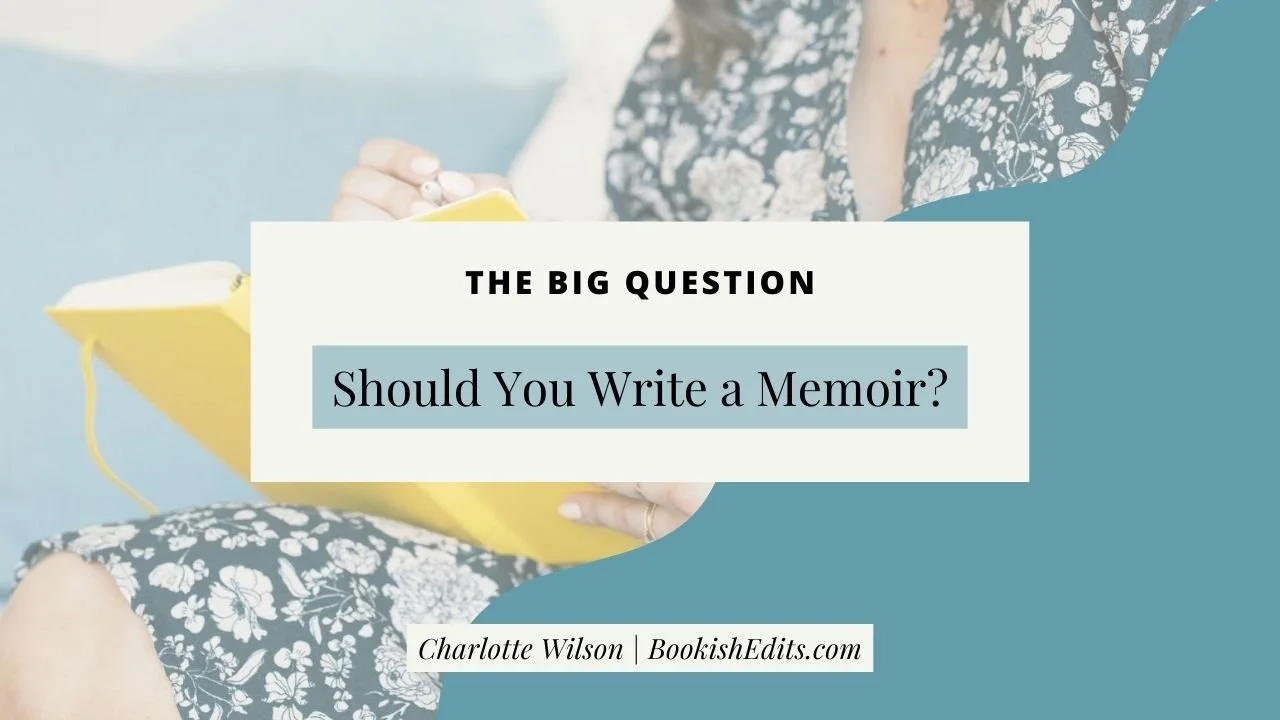The Big Question: Should You Write a Memoir?
Let’s get straight to it: Should you write a memoir? That’s really what you want to know. I’ll teach you how to make that decision by guiding you through the process I use one-on-one with writers in story validation calls.
I have a well-oiled process for meeting new writers and assessing where they are in the writing process and what I can offer to help them. Today I wanted to take you behind the scenes of this method and show you how to replicate the outcomes for yourself. The wonder of this framework is that every time writers leave these free thirty-minute calls with more clarity, more validation, and more empowerment than they had when we first met.
These calls are free, thirty minutes, and allow us to get straight to the heart of a writer and their story. I want to give you these tools so that you can inject some confidence and empowerment into your own writing whenever you need it.
“Tell me about yourself.”
The Zoom window opens, and we see each other face to face for the first time. I always smile wide, eager to show this writer that any space with me is a safe one. We touch on brief introductory pleasantries, and then every time I start with, “Tell me about yourself.” That’s all the prompting these writers need to pour out their story, their dreams, and their fears. Usually writers will talk to me for ten to fifteen minutes. This is their time to unload what they’ve been carrying up to this moment. Though I am a stranger, I also offer a safe space to be vulnerable and share what’s on your heart.
The role of listening
During those ten or fifteen minutes the writer is speaking to me, I actively listen. I’m paying attention to what they’re saying (and what they’re not saying). My mind is making connections between people, events, and experiences, already sifting through the words to find the real meaning. Occasionally I’ll ask a clarifying question, and I’ll have a notepad at hand to jot down thoughts, insights, and details I want to remember. Though the writer is the primary speaker during this first bit of the call, I am just as actively paying attention to their words.
Validation
What’s so magical about these calls is that when it’s my time to respond and assess everything the writer has told me, I don’t really tell them anything new. I take what they’ve told me about themselves and their story and reflect it back to them in a way that highlights what they’ve hoped is there all along.
Yes, that sounds like it was a very difficult time. I can see why you want to write about that.
Yes, of course you want to connect with other people in a similar situation.
I can see how passionate you are about this, and I love that. This manuscript can be very impactful with that level of emotion behind it.
Note that I’m not just telling them what they want to hear about their story—rather I’m reflecting back what I’ve seen in them and what they have been hoping I’ll perceive.
The validation part of this call is where I can confirm that yes, you are seen, and I see the value in what you have to write and share.
Examining as a editor
After I confirm to them the heart of their story and the validity of what they want to do, we take a more editorial approach and look at potential obstacles and pitfalls. We examine everything that could be holding them back and what type of support they could need. Nothing is off the table here: time, money, relational support, neurodivergence. By laying it all out, we’re making it easier for both of us to
Diagnose the problem
Every writer comes to me with a problem, and those problems fall into one of two camps (usually): focus or purpose. Sometimes a writer has so many ideas floating around with a million rabbit trails to follow, and that indicates a need for more focus. When a writer has a good idea of what they want to write about but still is going around in circles, they usually need a bigger purpose or why for writing that can ground them throughout the process. (And sometimes a writer needs attention in both!)
Once we know where to focus that energy and effort at the start, mapping out progress becomes so much more straightforward.
That’s it! That’s the process. I walk writers through this in thirty minutes, and you can follow this exact method yourself without having to carve out time in your busy schedule for a Zoom chat with a stranger. I have a new, free download designed to guide you through all of this, and it should take about as much time as that Zoom call does.
The magic of this process is that I teach you how to take your story and what you bring and reframe that in a way that allows you to see the potential of your writing and your story. This method is fueled by validation and empowerment, and it’s available to you right now.
You can hear me talk more about this process and the free ebook on episode 10 of the podcast.
And if you do still want to chat with me face to face? We can make that happen too.


